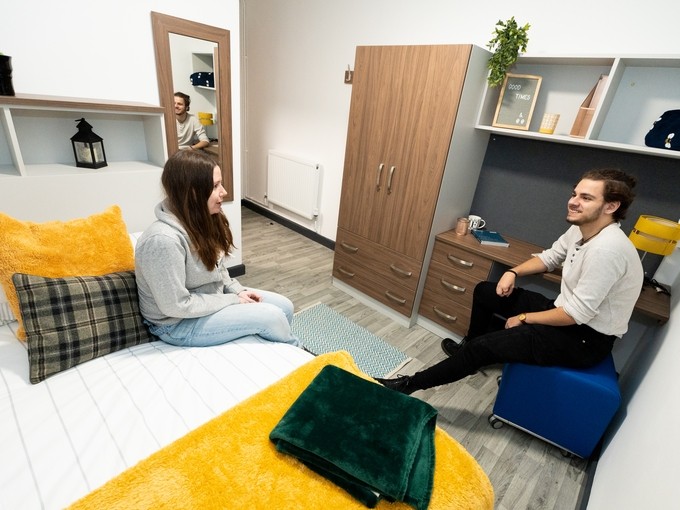The MA in Historical Studies provides students with a degree which fits the changing landscape of academia and society at large. It offers students the chance to develop their understanding of various historical themes, topics and eras, and to harness methodological, technical and research skills that characterise the study of history at postgraduate level and beyond.
The MA is research-led and rooted in lecturers’ professional interests and expertise in history (Medieval and Modern). The programme focuses on the ways in which the past has been narrativised, represented and contested in various media and settings (e.g. film, memorials, museums, websites). Students have the chance to take modules spanning the ancient medieval and modern periods. They will also explore how technological advances in the field of digital humanities are impacting knowledge and understandings of the past.
The programme offers an engaging syllabus which allows undergraduate students to take their studies to the next level.
Course details
- On-campus
- English
This programme is subject to revalidation.
Why choose this course?
What you will learn
This unique masters degree provides students with the chance to develop their understanding of various historical themes, topics and eras, and to harness methodological, technical and research skills that characterise the study of history at postgraduate level and beyond. In the process, it aims to provide a history education which fits the changing landscape of academia and society at large.
The programme is research-led, rooted in the professional interests and expertise of lecturers. Modules explore topics and themes relating to lecturers’ specific areas of research – e.g. commemoration of war, medieval religious houses – plus their distinct theoretical and methodological approaches to these. The programme has a common focus on the ways the past has been narrativised, represented and contested in various media and settings (e.g. film, memorials, museums, websites). The focus is primarily on the medieval–modern period. Students are also encouraged to explore technological changes which are impacting our understanding of the past.
(20 credits)
(30 credits)
(30 credits)
(30 credits)
Ratings and Rankings
Staff
Our People
You will be taught and supported by a wide range of professional staff and teams here to help you get the university experience you are looking for. Our teaching staff were ranked 2nd in Wales for assessments and feedback (NSS 2023) meaning the comments you get back from your work will help you learn. Our commitment to your learning has seen our students place us as Top 10 in the UK for Lecturers and Teaching Quality. Find out more about our academic staff who teach across our courses.
Accommodation

Lampeter Accommodation
Our Lampeter accommodation is based on our Lampeter Campus, meaning you are never far from what is happening on campus. We have a variety of different options open to our students which will suit all budgets.
Further information
-
Applicants are expected to have a good first degree (a first or upper second), although every application is considered in its own merit, so places may be offered on the basis of professional qualification and relevant experiences. Candidates with a lower degree classification or no degree may be admitted at Postgraduate Certificate or Diploma level, with an opportunity to upgrade to Master’s level if satisfactory progress is made.
-
The programme draws upon a wide range of assessment techniques, which aim to produce historians with a multifaceted set of skills and knowledge. Modules concentrate in particular on essay-writing, but also include the following assessments: book reviews; reflective journals; posters; group and individual presentations, web programming and design exercise; source commentaries and film analyses.
The core assessment is the final 15,000-word dissertation. The dissertation places a premium on originality and independent research. To equip students with the necessary knowledge and techniques for dissertation work, they are required to take a research methodology module early in their degree. This grounds students with the essential skills that are then finessed in other modules, culminating with the dissertation itself.
-
Students may spend up to £300 per year on books and additional related materials.
-
You may be eligible for funding to help support your study. To find out about scholarships, bursaries and other funding opportunities that are available please visit our Bursaries and Scholarships section.
-
This programme is ideal for those who want to learn more about the past, but there are also some more practical module choices to help students improve their job prospects. Many of the students who undertake the course on a part-time basis are already in employment and wish to gain a postgraduate qualification as a possible means to promotion or change of job role. Former students include journalists, writers, storytellers, teachers, lecturers, editors and people who work in the tourist or heritage industries.
